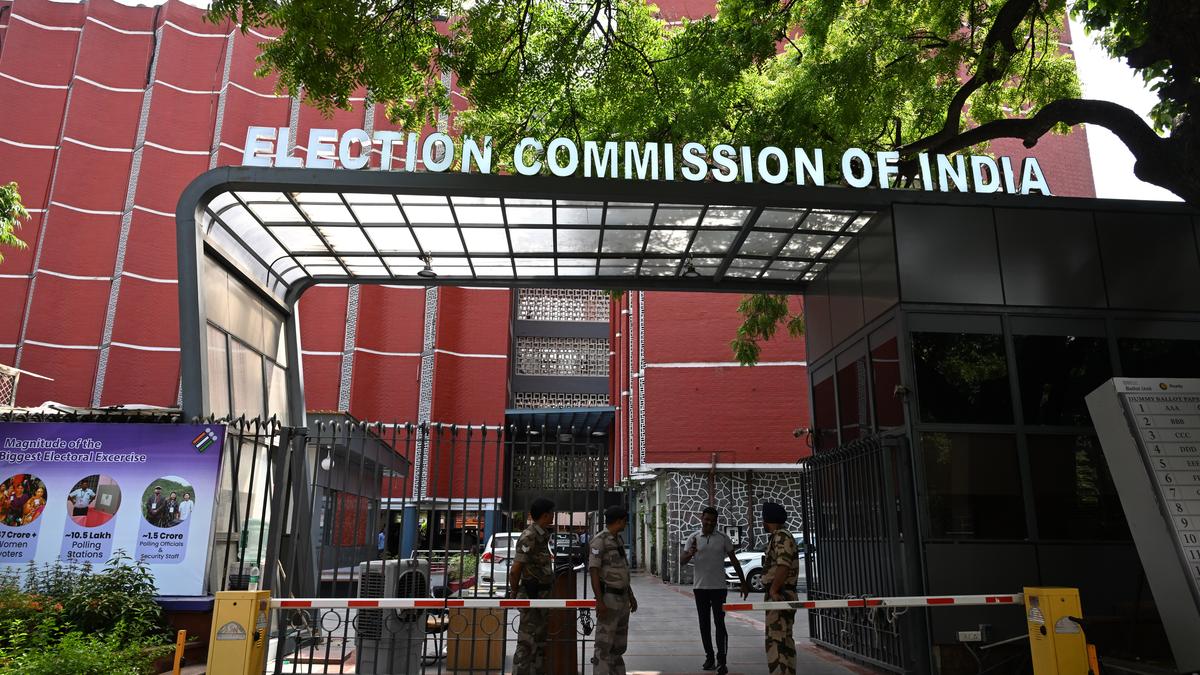
No voter should be turned, Supreme Court expresses concern to EC about enhanced voter limit
The Hindu
Chief Justice Khanna addresses Election Commission on potential disenfranchisement due to increased voters per polling station.
Chief Justice of India Sanjiv Khanna on Monday (December 2, 2024) told the Election Commission of India that “no voter should be turned down” while hearing a petition that the poll body’s move enhancing the maximum number of voters per polling station from 1,200 to 1,500 leads to disenfranchisement among the “teeming millions”, especially the underprivileged, for whom the Constitution works.
“We are concerned… no voter should be turned down. You have to explain your position,” Chief Justice Sanjiv Khanna, heading a Bench with Justice Sanjiv Kumar, addressed the Election Commission.
Also read: Election Commission of India | Hand-holding Indian democracy
The petition, filed by activist Indu Prakash Singh, represented by senior advocate A.M. Singhvi, Shadan Farasat and advocate Talha Abdul Rahman, challenged an August 7, 2024 communication of the Election Commission (EC).
Rather than increasing the number of Electronic Voting Machines (EVMs) or polling stations in every constituency, the EC has chosen to increase the number of electors per polling station, probably in a bid to lower the cost of election. “The EC does not realise that such an approach actually is a very expensive step in democracy as it results in exclusion… Representation of People Act, 1951 mandates the Election Commission to provide for a ‘sufficient number of polling stations for every constituency’,” the petitioner noted.
The petition said the increase would lead to crowding of polling stations, resulting in longer waiting hours and queues. These are factors which would prove unfriendly for daily wagers. The petition called for an immediate intervention from the court as the issue concerned various upcoming elections including in Delhi and Bihar.
“This will have a disparate impact on marginalised communities and low-income groups particularly daily wagers, rickshaw pullers, maids, drivers, vendors, etc, for whom long waiting hours result in deprivation of wages. Thus, simply by increasing number of electors per polling station (rather than increasing polling stations or having more EVMs), the electors can be disenfranchised… elections must not only be free and fair but also be seen to be free and fair and on the principles of equal participation of electors in the election process,” the petition argued.

The Karnataka government has drafted a comprehensive master plan for the integrated development of Kukke Subrahmanya temple, the State’s highest revenue-generating temple managed by the Hindu Religious Institutions and Charitable Endowments Department. The redevelopment initiative is estimated to cost around ₹254 crore and aims to enhance infrastructure and facilities for devotees.












